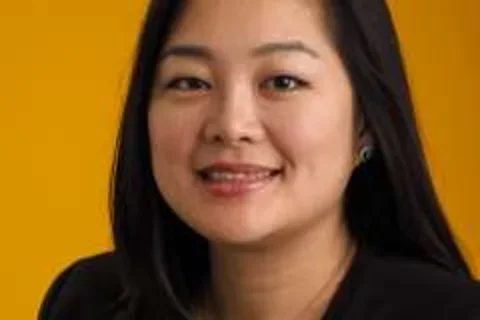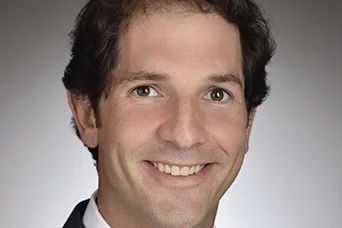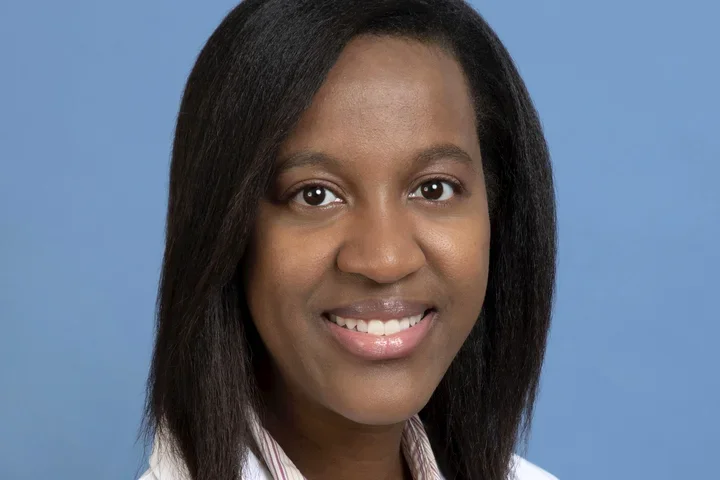Q&A with Jocelyn Kim: Infectious disease research and becoming an early stage investigator

Dr. Jocelyn Kim, a 2018 recipient of the UCLA CTSI’s KL2 award and an NIH K08 award, discusses her path to success in basic science research
Jocelyn Kim, MD, PhD, is an infectious disease specialist at the University of California, Los Angeles (UCLA). After research training from the UCLA STAR program for physician-scientists, and three years of mentored support from her KL2 Award, Dr. Kim received a National Institute of Health (NIH) K08 award, which led to her recent publication in Nature Communications describing a new strategy for killing HIV-infected cells. Two of her mentors, Dr. Mitchell Wong and Dr. Elizabeta Nemeth, sat down to chat with her about her growth as a physician scientist, and the conversation was moderated by Jessica Castillo, the CTSI Senior Operations Manager.
Drs. Wong and Nemeth also serve as co-directors for the UCLA CTSI KL2 Program. Dr. Wong is also the Vice Chair for Research Training in the Department of Medicine at UCLA, Executive co-Director of the UCLA Specialty Training and Advanced Research (STAR) Program, Co-Director of the UCLA NRSA Primary Care Fellowship, and a leader of the CTSI Workforce Development Program. Dr. Nemeth is a Professor of Medicine at UCLA.
MW: While you have experienced a lot of success and now have had some high-profile publications, there were ups and downs along the way. What helped you get through those downs?
JK: There is certainly a lot of rejection and a lot of missteps that come along the way. My initial K08 application received terrible reviews, and I often felt like things weren’t progressing quickly enough in my career. It’s not so much experiencing failures so much as running into obstacles and having to be creative in how to maneuver around them or hammer through them. I personally owe the most to my husband for being a great partner and so supportive. Along with that, having kids gave me perspective. It was important for me to find a balance between my personal life and work life to ensure that I didn’t burn out. I feel like at this stage I can now recognize the signs of when I’m starting to burn out and can therefore get ahead of it and address it. I think it’s important for young faculty to become aware of those warning signs as early in their career as they can.
MW: What was your experience with the KL2 program and how did it impact your career?
JK: After receiving the KL2 award, it was really important to get started early on the K08 submission, especially for someone like me who had to make the transition from Caltech. Submitting a K08 is a way to know, based on the first round of reviews, whether you’re headed on the right path or not. If the reviews that come back are harsh, that might be a sign that you need to take a different route or search for a different project idea entirely, though this can be a scary position to be in. This is what happened to me, and as much as I wanted to stay in the area of cancer vaccine research, it wasn’t going well, and I had joined a new lab. I was able to look at which projects at that lab were getting funding and which ones seemed stable and needed more researchers. Even if that project wasn’t my original research interest, I have found that if the project is generating compelling results, I will gain an interest it.
Don’t limit yourself too much to one research area. As soon as you get your KL2, making a submission whether through a K08 or a fellowship, so you can get a first pass on your work, is a really good idea.
EN: How did you strategically determine which projects to try and be a part of?
JK: It is important to understand how money flows within a lab and where the money is going, so when first joining a lab, the first thing you should do is look up which grants the PI has been awarded, what year the grants started, what money is going into the project, who else is working on it, and if they’re looking for additional faculty to work on it. You might be able to convince them to hire a tech for half-time and then pay the other half with your KL2. Understanding these specifics was actually an important part of my PhD training. As a graduate student, you should understand where the money coming into your account is coming from. Each lab is run differently, however, and some PIs might want to keep this information under wraps so that there isn’t infighting over money. In other labs, there might be complete transparency about it. If you can identify a project you might be able to lead or help on, and the PI is open to you writing your first R01 based on it, that is a great way to get started as an early-stage investigator.
MW: Can you talk about some of the CTSI resources that helped you as an early stage investigator (ESI)?
JK: I made use of the K Grant Studio, a component of the CTSI K Scholar Society program, wherein a team of PIs reviewed my project idea to give personalized, scientific advice. In my case I was lucky enough to get my dream team of PIs to give me feedback. They give honest feedback on whether the idea is convincing and compelling and whether it makes sense. They can tell you when the logic or rationale doesn’t ring true. They will also ask you basic questions in ways that might make you realize you haven’t made information clear enough in the grant, particularly if someone outside of your field is reading it. They also gave me advice on what methods and aspects to highlight because they might be seen as attractive to a reviewer.
The program also includes the Mock Study Section, where the grant is reviewed by an internal study section composed of junior and senior faculty. They make sure the grant is written well; this is more about grantsmanship. They are judging based more generally on the writing, but may not be experts in the field and therefore can’t necessarily give a sense of how attractive the idea will be to the NIH or if it’s a dead end. However, they will make your writing better. They also have a biostatistician to give feedback on your statistical sections, which is very helpful!
Lastly, I got funding through the Core Voucher Program in 2020 through the CTSI. This was preliminary funding for the K08. It went toward mouse work and freed up money to pay staff and technicians.
EN: How is your career development going, on the path to independence and your first R grant?
JK: I am still in the Health Sciences clinical track, with the idea being that I will reach Associate Clinical Professor in 2023. I have opted to stay in the same department in the hopes of getting an R01 and therefore more stable funding. I’m on the second year of my K08, and with the Nature Communications paper coming out, I’ve wondered if this year I should submit something else to the NIH. However, this past year I have written many grants for my PI, to ensure our lab has more money and we can hire more people, which we have. I now have techs working under me to assist with the submission of an R01, which is great, but a lot of my ideas and preliminary data went into the grants submitted to hire them, so now I have to figure out what additional preliminary data I can pull from for an R01. It can be tricky, knowing what data to use for your PI’s R01 and what to hold back for your own eventual submission.
MW: Tell us a little about the beginning of your career path and starting out as faculty.
JK: When I finished up the STAR program and became faculty, unlike a lot of the other STAR program members, I had to make a transition from Caltech. I had some anxiety around this because it meant I might have to find another mentor. I didn’t know if I would get to continue with my thesis project or if I would have to start over with something new. For any other people who aren’t doing their PhD or postdoc at UCLA, this is something you should be aware of. It’s a break in your career path because it takes some time to make that adjustment and transition, and in many cases, you have to start over. This was the hardest part of getting hired as faculty. It’s not the seamless transition that other STAR applicants experience. You have a new lab, new people, and a new project.
EN: How did you approach this transition to UCLA?
JK: Because I started my PhD after all my medical training, I knew it was important to identify a mentor who was interested and experienced in mentoring young faculty, who I could connect with and knew I’d have a good relationship with. If you are in a position similar to mine, you should have it in the back of your mind that you will need to assimilate into UCLA at some point, and consider joining groups or attending meetings that will allow you to meet PIs within the UCLA system. I had to come to terms that what was best for me was to start with a new project, rather than trying to transfer over my previous project from the STAR program and my PhD. Not everyone’s path is the same.
EN: We have heard many young faculty express the concern of whether or not they should stay in science. What kept you going and what was the biggest influence for you to stick with it?
JK: There are both personal and professional aspects to this. Anyone who is going for a PhD after medical training has already put a lot of time into it, and has given the career path serious consideration. It is a true commitment. Therefore, if someone does drop out of the program, it’s likely a number of factors: financial, personal, familial. Going into research is very rewarding, but it does require sacrifices, and you need a partner who is on board, or a support system. It’s also common for women to sacrifice their careers first as well, if necessary to make ends meet. It’s less about whether or you want it enough or not, and more about practical considerations.
JC: Do you have any further advice or encouragement for those early in their research career?
JK: Basic science research involves a lot of trial and error. Maybe the experiment itself fails. Maybe the technology needed to answer your question doesn’t exist yet. Maybe your hypothesis is wrong. It can be a long journey to get your research to a point where it’s successful and can make it into a publication. It’s important to have mentors and colleagues who can champion you and cheer you on through this process.
It’s very humbling to go into science because there is so much failure you have to work through before getting those successes. It’s entirely different from medical school, where you aren’t really trained to learn what that sort of repeated failure is like. Therefore, it can be really demoralizing because you’re not used to that situation. This is why it’s so important to have a mentor to encourage you and cheer you on.
A big question of whether or not to stay in academia versus move out of it to other medical professions is whether or not you have a passion to train and mentor others. If mentoring is something that you find rewarding and satisfying, then there is a good chance that you will stay within academia. If mentoring is gratifying or even more gratifying than the research itself, that means academia is probably for you.
JC: What tend to be the spaces where you find opportunities to mentor?
JK: I’m still early enough in my career that the people I mentor are much younger than me. While I will speak to fellows about their career goals while rounding in the hospital, that isn’t where I do the majority of my mentoring. However, I think it is important to ask them about what they want to do with their life even more so than answering specific medical or scientific questions. However, most of my mentoring happens in the lab with undergraduates and technicians who are deciding if they want to go to medical school or graduate school, or figure out in general what they want to do in life. I can relate to those people in their twenties who are feeling lost and trying to figure out what to do with their lives, and I feel like I can help them and give them advice.
This is why it’s crucial to try and find a mentor early on. It’s better if this is someone who isn’t your boss. They should be invested in seeing you succeed and do well, but should not be directly affected by your success and failure. It is more about their emotional investment. It also helps to have someone who will be completely honest with you about political parts of the career track, such as promotions or other logistical questions of how things work in the UCLA system.


